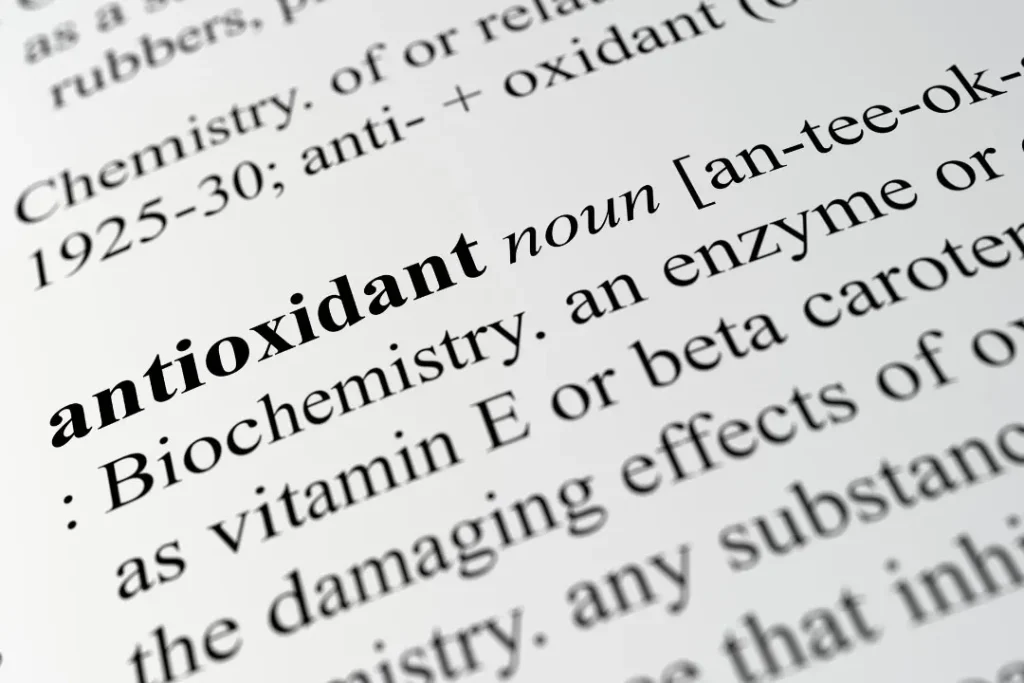Reduce Resting Heart Rate Naturally: Proven Strategies and Supplements
Lowering resting heart rate naturally is achievable through a combination of effective strategies, like aerobic exercise, and beneficial supplements, such as omega-3 fatty acids. Discover how you can lower your resting heart rate and promote overall cardiovascular wellness today.
Maybe you’ve heard the term “resting heart rate,” but you aren’t sure exactly what it means. Simply put, it’s the number of times your heart beats per minute when you’re at rest. Adults’ average resting heart rate ranges from 60 to 100 beats per minute. Lower resting heart rates, unless there’s a medical condition causing them, are associated with good cardiovascular health. Some athletes have healthy resting heart rates as low as 40 beats per minute.
Doctors and health experts are concerned about elevated resting heart rates because they can be linked to higher risks of heart disease, high blood pressure (hypertension), and even a shorter life span. A healthier resting heart rate can lead to better sleep, improved stamina, and a calmer response to stress. Let’s investigate strategies to keep your heart in tip-top shape and ensure it beats a healthy rhythm.
You May Also Like:
Omega 3 for Arthritis: Ease Joint Pain the Natural Way
Eating Protein on a Plant Based Diet: Plant Based Protein and Its Nutritional Benefits
Reduce Resting Heart Rate Naturally: Proven Strategies and Supplements is an original (BetterNutritionNews) article.
Natural strategies to reduce resting heart rate
Regular exercise
We all know exercise is good for us, even if we don’t always feel like doing it, but it really is the heart’s best friend. According to one study, engaging in regular aerobic activities, like walking, jogging, or swimming, can lead to a reduction in resting heart rate, along with strength and resistance training.
Avoid exercise boredom by mixing up your activities. Experiment and find some activities you enjoy so that you’ll stick with them. This meta-analysis published in The Journal of Clinical Medicine concluded that everything from yoga to endurance sports could positively influence resting heart rate. So, whether lifting weights or taking a brisk walk around the block, you’re tuning up your heart. Every step, every lift counts.
Stress reduction techniques:
An alarm that doesn’t turn off keeps everyone on edge, always alert. Similarly, chronic stress is a continuous alarm for your body, keeping your heart rate elevated even when there’s no immediate threat. This elevated heart rate happens because stress activates the body’s “fight or flight” response, releasing stress hormones that increase heart rate. Now, imagine how hard your heart is working if this stress persists day in and day out.
Meditation and mindfulness can come to the rescue. For example, a study on the therapeutic effects of yoga describes how mindfulness techniques can shift the body from “fight or flight” to a more relaxed state, effectively shutting off that noisy alarm. Focusing on the present moment and practicing deep breathing, meditation, and mindfulness can calm the nervous system, leading to a more relaxed and lower resting heart rate.
Proper hydration: Keep it flowing
Remember the last time you suddenly felt parched on a hot summer’s day? Dehydration can sneak up on you, making your heart work overtime.
Think of your blood as a river flowing smoothly when there’s enough water. When you’re dehydrated, your blood becomes thicker, making it harder for the heart to pump it throughout the body. It’s like trying to push mud through a straw. Your heart has to beat faster to compensate for this increased resistance because it’s trying desperately to do its job. This extra effort results in an increased resting heart rate.
When you hydrate well, you’re making the river flow smoothly again, easing the workload on your heart. Staying hydrated is more than just quenching thirst; it’s about ensuring your heart doesn’t have to work overtime. If you find plain water dull, try some of these 10 super-hydrating drinks that are way more interesting than a glass of water.

Two supplements that may help reduce resting heart rate:
CoQ10 and omega-3 fatty acids.
Coenzyme Q10 (CoQ10)
Coenzyme Q10 (CoQ10) is a powerhouse compound naturally produced by our bodies and found in every cell. Coq10 has been promoted as a heart health supplement for several decades. As one study shows, it can reduce symptoms of heart failure, which might indirectly lead to improved resting heart rate.
CoQ10 has several mechanisms through which it can contribute to an improved resting heart rate, including:
Energy production: CoQ10 is essential for producing ATP (Adenosine Triphosphate), the body’s energy source that keeps your heart functioning efficiently, potentially leading to a more optimal resting heart rate.
Antioxidant protection: CoQ10 is a potent antioxidant, protecting the heart from oxidative damage. A heart that’s less burdened by oxidative stress can function more efficiently.
Blood pressure regulation: Since there is a relationship between blood pressure and heart rate, high blood pressure could elevate the resting heart rate. This study demonstrates that CoQ10 can help lower blood pressure, which could positively affect resting heart rate.

Omega-3 fatty acids
Omega-3 fatty acids are the multitaskers of the supplement world – they’re good for your brain, vision, and mood. They excel at heart health with benefits such as:
- Reducing triglycerides ( a type of fat in the blood)
- Keeping your heartbeat regular
- Slowing plaque (a substance that blocks your arteries) buildup
- Slightly lowering your blood pressure
All of these benefits contributing to overall heart health can have a favorable effect on resting heart rate. The best case for omega-3s lowering heart rate is in a 2012 study, which states, “These findings suggest a highly consistent and robust effect of omega-3 fatty acids on heart rate.” The study concluded that omega-3 fatty acid supplementation reduces resting and stress-induced heart rates.
There are three main types of Omega-3s: ALA (alpha-linolenic acid), DHA (docosahexaenoic acid), and EPA (eicosapentaenoic acid). These fatty acids are essential fats our bodies can’t produce independently, so we have to get them from what we eat. Food sources include:
- Fish (EPA & DHA): Fatty fish like salmon, mackerel, sardines, and herring.
- Krill Oil (EPA & DHA): Processed from tiny shrimp-like shellfish – a type of plankton.
- Plant Oils (ALA): Flaxseed, chia seed, and hemp seed oil.
- Nuts and Seeds (ALA): Particularly walnuts and chia seeds.
Getting sufficient amounts of EPA and DHA through diet alone can be challenging unless you eat fish regularly. Fish and Krill oil supplements are easy to use and effective in providing EPA and DHA. While fish oil is the more common source and can be less expensive, krill oil is a unique source. The DHA and EPA in krill oil are bound to phospholipids, the same lipids that compose human cell membranes. This phospholipid structure makes the DHA and EPA in krill oil easier for our bodies to absorb and use. In contrast, fish oil contains DHA and EPA in triglyceride form, a less direct pathway for absorption.
If you want to give krill oil a try, Kori Krill Oil, derived from the pristine waters of Antarctica, offers omega-3s in a phospholipid form, which, as mentioned, facilitates easier absorption and use. Kori Krill is a premium product with strict standards. CEO Nancy Chan states, “Because of our relationship with the krill supplier, we have quality control through the entire process.”
Their Multi-Benefit Omega-3 Softgels are third-party tested to ensure you get a pure product free of contaminants. This supplement contains no GMOs or artificial flavors, colors, or preservatives.
Beyond its health benefits, Kori Krill Oil strongly emphasizes sustainability. Their commitment to responsible sourcing ensures that the environmental impact is minimized while consumers benefit from a premium product.

Give your heart a well-deserved rest
Reducing your resting heart rate isn’t just about numbers; it’s about mitigating the risks of cardiovascular disease and improving your quality of life while potentially adding years to it. Try incorporating one or two strategies, whether exercise, relaxation, hydration, or supplements; every little bit helps. Your heart’s been beating for you since before you were born – it deserves a little rest now and then.

For further research:
Heart.Org All About Heart Rate (Pulse)
Johns Hopkins Medicine 7 Heart Benefits of Exercise
Harvard Health – Meditation offers significant heart benefits
Kori Krill – What are the Differences Between CoQ10 and Omega-3 Fish or Krill Oil?
Important Note: The information contained in this article is for general informational purposes only, and should not be construed as health or medical advice, nor is it intended to diagnose, prevent, treat, or cure any disease or health condition. Before embarking on any diet, fitness regimen, or program of nutritional supplementation, it is advisable to consult your healthcare professional in order to determine its safety and probable efficacy in terms of your individual state of health.
Regarding Nutritional Supplements Or Other Non-Prescription Health Products: If any nutritional supplements or other non-prescription health products are mentioned in the foregoing article, any claims or statements made about them have not been evaluated by the U.S. Food and Drug Administration, and such nutritional supplements or other health products are not intended to diagnose, treat, cure, or prevent any disease.



